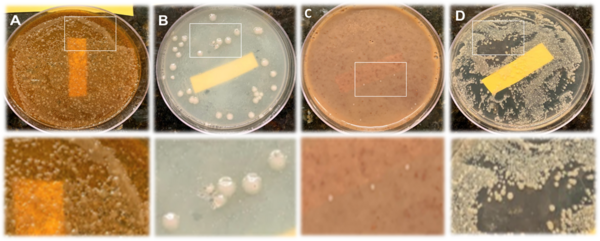Antibacterial properties of household spices and toothpaste against oral bacteria
(1) Hayfield Secondary School, Alexandria, Virginia, (2) Commonwealth Charter Academy, Enola, Pennsylvania, (3) Commonwealth Charter Academy, Camp Hill, Pennsylvania, (4) Harvard University Graduate School of Arts and Sciences, Cambridge, Massachusetts, (5) Duke University, Durham, North Carolina
https://doi.org/10.59720/22-007
Bacteria cause tooth decay, plaque, bad breath, and other diseases. Despite being cleaned with water and toothpaste, oral bacteria live on our toothbrushes. Other bacteria also live on our toothbrushes, like Escherichia coli. Small particles of fecal matter are aerosolized when the toilet is flushed, carrying E. coli and other bacteria to our toothbrushes and surfaces. Bacterial growth has been shown to be inhibited by different toothpastes and common household spices. This study tested how different toothpastes and common household spices, including cinnamon, cumin, nutmeg, and ground white pepper, can inhibit bacteria from growing on toothbrushes. We hypothesized that three different toothpastes and all four spices would inhibit the bacterial growth from our toothbrushes. We observed the growth of bacteria isolated from toothbrushes on agar plates mixed with toothpaste, cinnamon, cumin, nutmeg, and ground white pepper and found that toothpaste did not have the strongest antibacterial properties. Instead, we discovered that cinnamon served as the best bacterial growth-suppressing spice. Our results support the claim that cinnamon has the potential to improve people’s oral health, and a future experiment using cinnamon toothpaste, instead of the spice alone, could show promising antibacterial properties
This article has been tagged with: